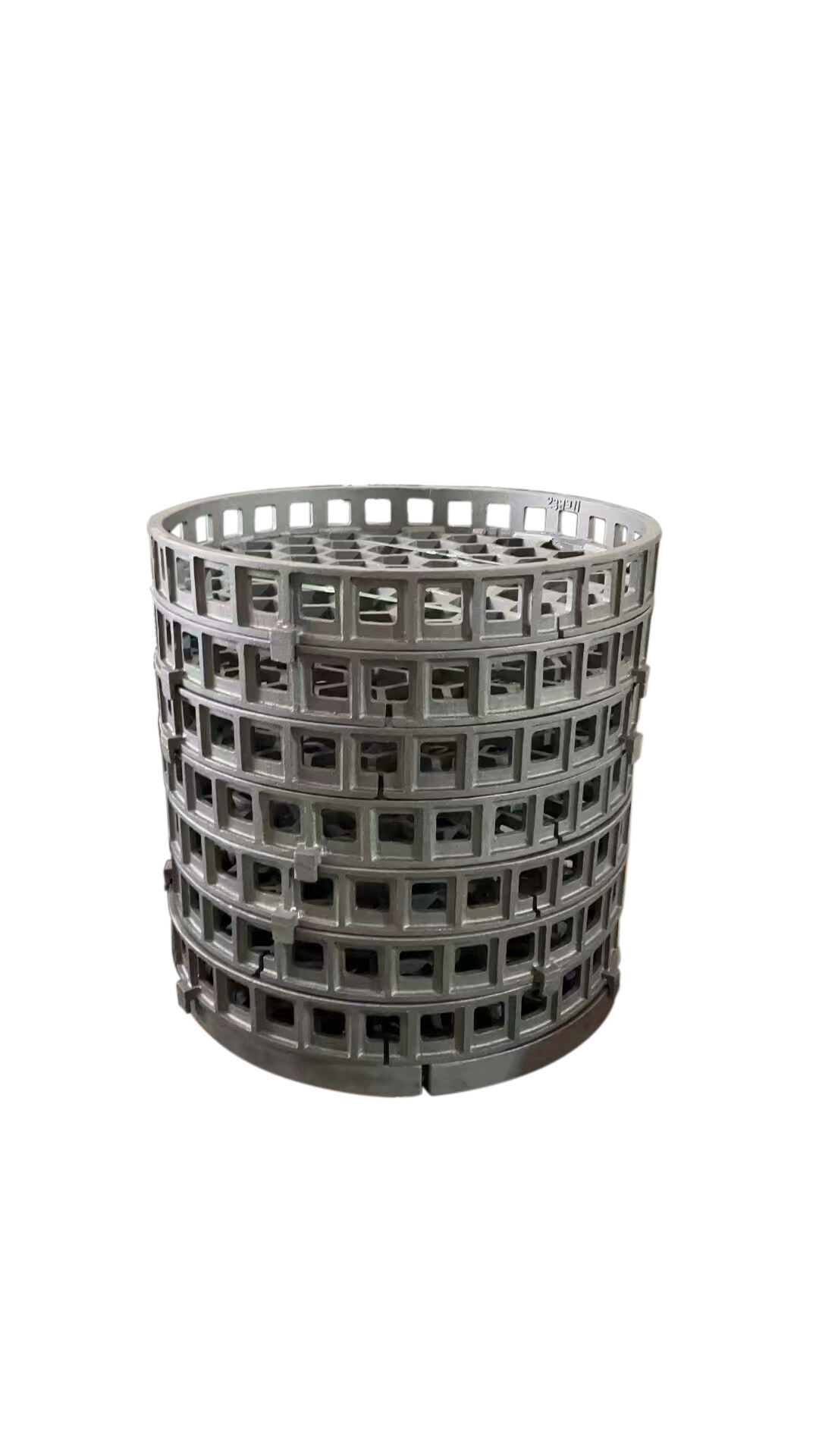Introduction: Where Precision is Non-Negotiable
In the automotive and aerospace industries, a single component failure is not an option. It can mean a catastrophic recall, the loss of a multi-million-dollar asset, or, most critically, the loss of life. The parts that power our vehicles and aircraft—from the engine block in your car to the turbine blade in a jet engine—are often born from a process that dates back millennia but is now executed with microscopic precision: metal casting.
However, the casting services that supply these sectors are a world apart from standard foundry work. Here, the stakes are immeasurably higher, and the standards are uncompromising. This article will serve as your essential guide, detailing everything you need to know about casting for automotive and aerospace—from the advanced processes and critical materials to the rigorous quality systems that make it all possible.
1. The Extreme Demands of Automotive and Aerospace Applications
Before diving into the "how," it's crucial to understand the "why." Why is casting for these industries so specialized? The components must operate in environments and under conditions that push materials to their absolute limits.
Reliability and Safety: This is the paramount, non-negotiable requirement. Every part must perform its function flawlessly, for thousands of hours, under immense stress and in harsh environments.
-
Performance Under Extreme Conditions:
High Temperatures: Automotive turbochargers and aerospace turbine blades operate in searing heat, requiring exceptional heat resistance and resistance to creep (deformation under stress over time).
Immense Stresses: Components like engine blocks, landing gear parts, and structural brackets bear tremendous mechanical loads and fatigue cycles.
The Lightweighting Imperative: In both sectors, weight is the enemy of efficiency. For cars, it impacts fuel economy and electric vehicle range; for aircraft, it directly affects payload and fuel burn. Castings must achieve the highest possible strength-to-weight ratio.
Consistency and Traceability: Every single batch of metal, every heat treatment cycle, and every finished part must be documented and traceable. There is no room for batch-to-batch variation.
2. Key Casting Processes for Demanding Components
Not all casting methods are created equal. The following processes are the cornerstones of high-integrity casting for automotive and aerospace.
2.1. Investment Casting (The Gold Standard for Complexity)
Also known as the lost-wax process, investment casting is renowned for its ability to produce parts with exceptional dimensional accuracy, complex geometries, and superb surface finishes.
How it Works: A wax or plastic pattern of the part is created, then coated (invested) in a ceramic slurry to build a hard shell. The wax is melted out, and molten metal is poured into the resulting ceramic mold.
-
Why it's Used:
Intricate Details: Perfect for parts with thin walls, complex internal passages, and fine details, such as turbine blades with internal cooling channels.
Near-Net Shape: Minimizes the need for secondary machining, which is critical for hard-to-machine superalloys.
Excellent Material Utilization: Reduces waste of expensive alloys.
2.2. Sand Casting (The Champion for Size and Versatility)
While often used for larger, less precise parts, advanced sand casting techniques are crucial for automotive and aerospace, particularly for larger structural components.
-
How it Works: A mold is formed from a sand mixture packed around a pattern. Key advancements include:
Chemically-Bonded Sands: Using resins for higher dimensional stability and better surface finish than traditional green sand.
3D Printing (Binder Jetting): Additive manufacturing is used to create the sand molds directly from a CAD model, enabling incredible design freedom for prototypes and complex cores.
-
Why it's Used:
Large Components: Ideal for engine blocks, cylinder heads, and large structural airframe parts.
Cost-Effectiveness for Low/Medium Volumes: More economical than investment casting for larger parts.
Material Flexibility: Suitable for a wide range of alloys, from aluminum and cast iron to high-performance alloy steels.
3. Critical Materials: From Aluminum to Superalloys
The choice of material is a strategic decision, directly impacting performance, weight, and cost.
Aluminum Alloys: The workhorse for lightweighting. Used extensively in automotive engine blocks, cylinder heads, and aerospace structural components. Offers a good strength-to-weight ratio and excellent corrosion resistance.
Alloy Steels: These steels provide the high strength, toughness, and wear resistance required for critical, high-stress components like landing gear, powertrain gears, and engine mounts.
Heat-Resistant Steels & Superalloys: These are essential for withstanding the extreme temperatures in exhaust systems, turbochargers, and jet engines. Grades like DIN 1.4848 offer exceptional oxidation and creep resistance. Nickel-based superalloys are used for the most demanding turbine components.
Titanium Alloys: The ultimate choice for the most critical aerospace applications where the highest strength-to-weight ratio is needed, combined with excellent corrosion resistance. Used for critical airframe structures and jet engine components.
4. The Non-Negotiable: Quality Assurance and Industry Certifications
This is what separates a general-purpose foundry from an automotive or aerospace supplier. The quality infrastructure is as important as the casting process itself.
-
Mandatory Quality Management Systems:
IATF 16949 (Automotive): The global standard for automotive quality management, built upon ISO 9001 with far more stringent requirements for continuous improvement, defect prevention, and risk management.
AS9100 (Aerospace): The equivalent standard for the aerospace industry, emphasizing product safety, reliability, and traceability.
-
Rigorous Non-Destructive Testing (NDT): Every critical part is thoroughly inspected using advanced methods:
Radiographic Testing (X-ray): Reveals internal defects like porosity, shrinkage, and inclusions.
Dye Penetrant Inspection: Detects surface-breaking cracks.
Ultrasonic Testing: Identifies sub-surface flaws and measures wall thickness.
Comprehensive Material Certification: Suppliers must provide certified mill test reports for the raw materials and full documentation of the melting, heat treatment, and testing processes for each batch of castings.
5. The Synergy: Heat Treatment and Post-Casting Processes
The journey of a casting doesn't end at the mold. Heat treatment is a critical, value-adding process that unlocks the desired mechanical properties in the material.
Solution Annealing: For heat-resistant steels and superalloys, this process homogenizes the microstructure and dissolves precipitates, optimizing high-temperature performance.
Quenching and Tempering: For alloy steels, this sequence creates the optimal balance of high strength and good toughness.
Hot Isostatic Pressing (HIP): A vital post-process for aerospace castings. HIP subjects the part to high temperature and isostatic gas pressure, which closes internal porosity, effectively heals defects, and dramatically improves fatigue life and reliability.
6. Choosing the Right Casting Partner: A Decision with Consequences
Selecting a casting supplier for automotive or aerospace work is a strategic partnership. Here are the key questions to ask:
What are your specific certifications? (IATF 16949 / AS9100 are mandatory).
What is your NDT capability in-house?
Can you provide full material and process traceability?
Do you have experience with our specific alloy and application?
What is your process for validating a new part (e.g., First Article Inspection)?
Conclusion: More Than a Part, It's a Promise
Casting services for the automotive and aerospace industries represent the pinnacle of metallurgical and manufacturing engineering. It is a field where advanced processes, sophisticated materials, and uncompromising quality systems converge to create components that are not just parts, but promises of safety, performance, and reliability.
Understanding these fundamentals—the processes, the materials, and the critical importance of quality assurance—is the first step in successfully navigating this complex and demanding landscape. It ensures that the components that move and connect our world are built to last, even under the most extreme conditions imaginable.
Table of Contents
- Introduction: Where Precision is Non-Negotiable
- 1. The Extreme Demands of Automotive and Aerospace Applications
- 2. Key Casting Processes for Demanding Components
- 3. Critical Materials: From Aluminum to Superalloys
- 4. The Non-Negotiable: Quality Assurance and Industry Certifications
- 5. The Synergy: Heat Treatment and Post-Casting Processes
- 6. Choosing the Right Casting Partner: A Decision with Consequences
- Conclusion: More Than a Part, It's a Promise


